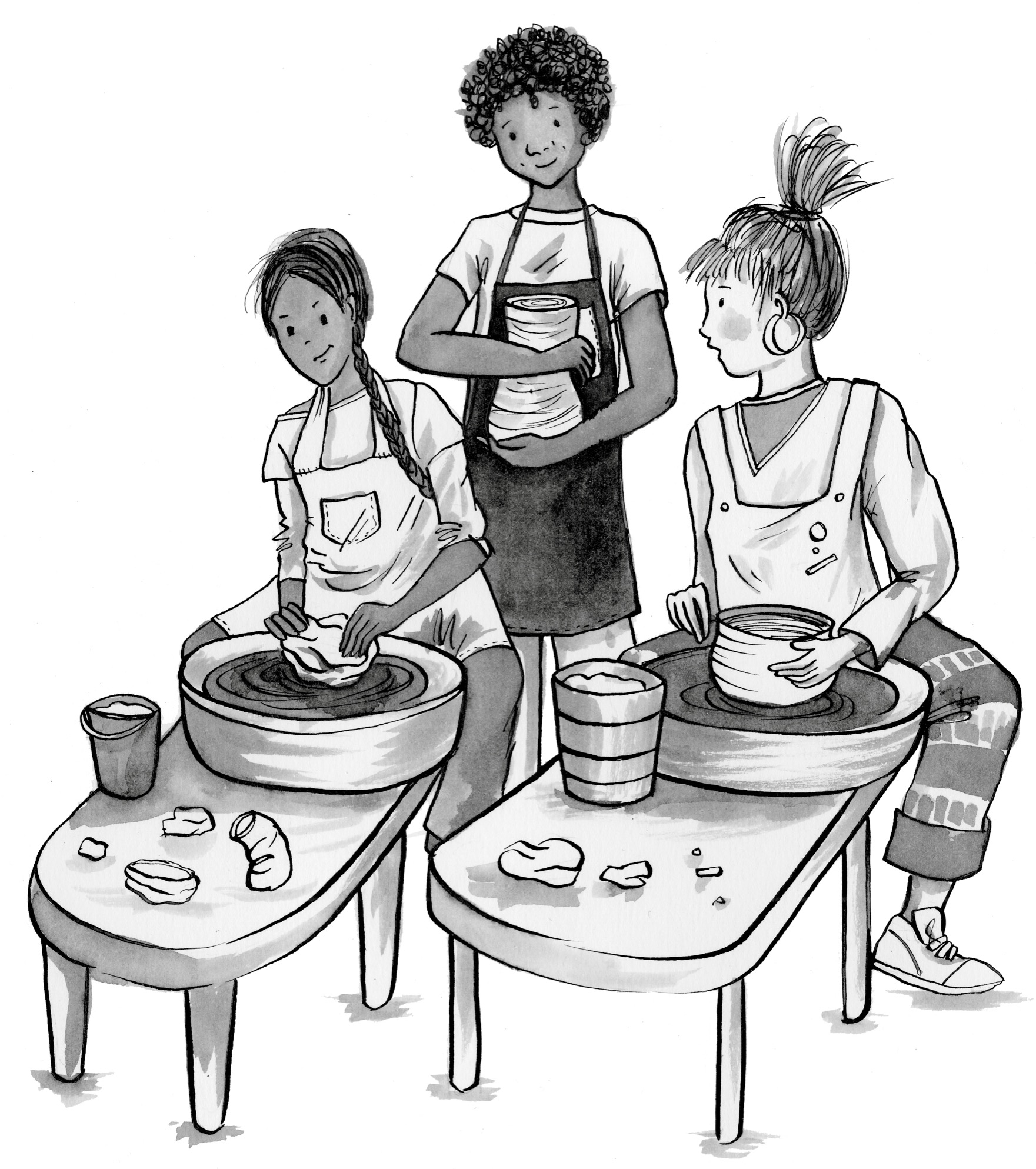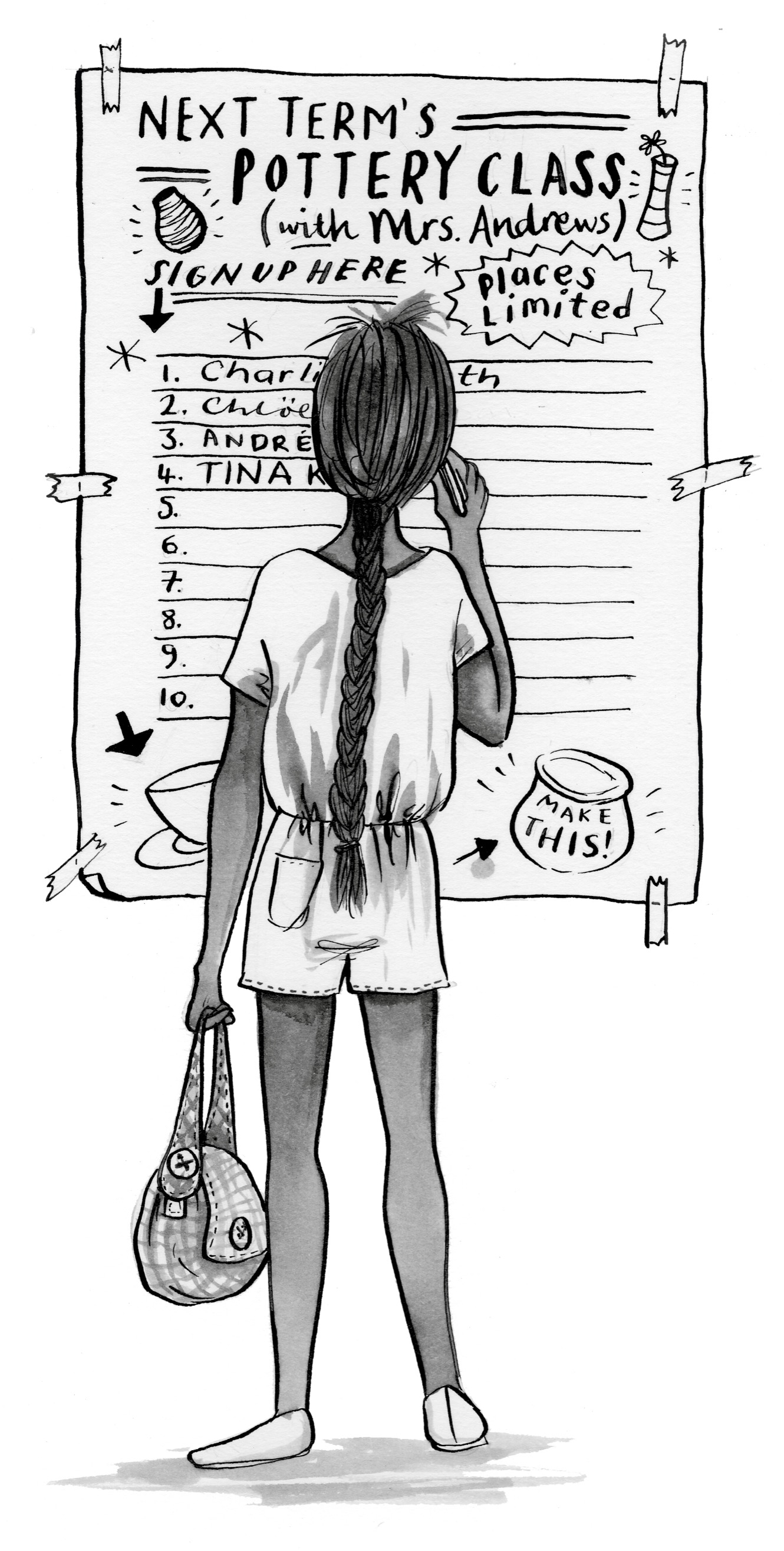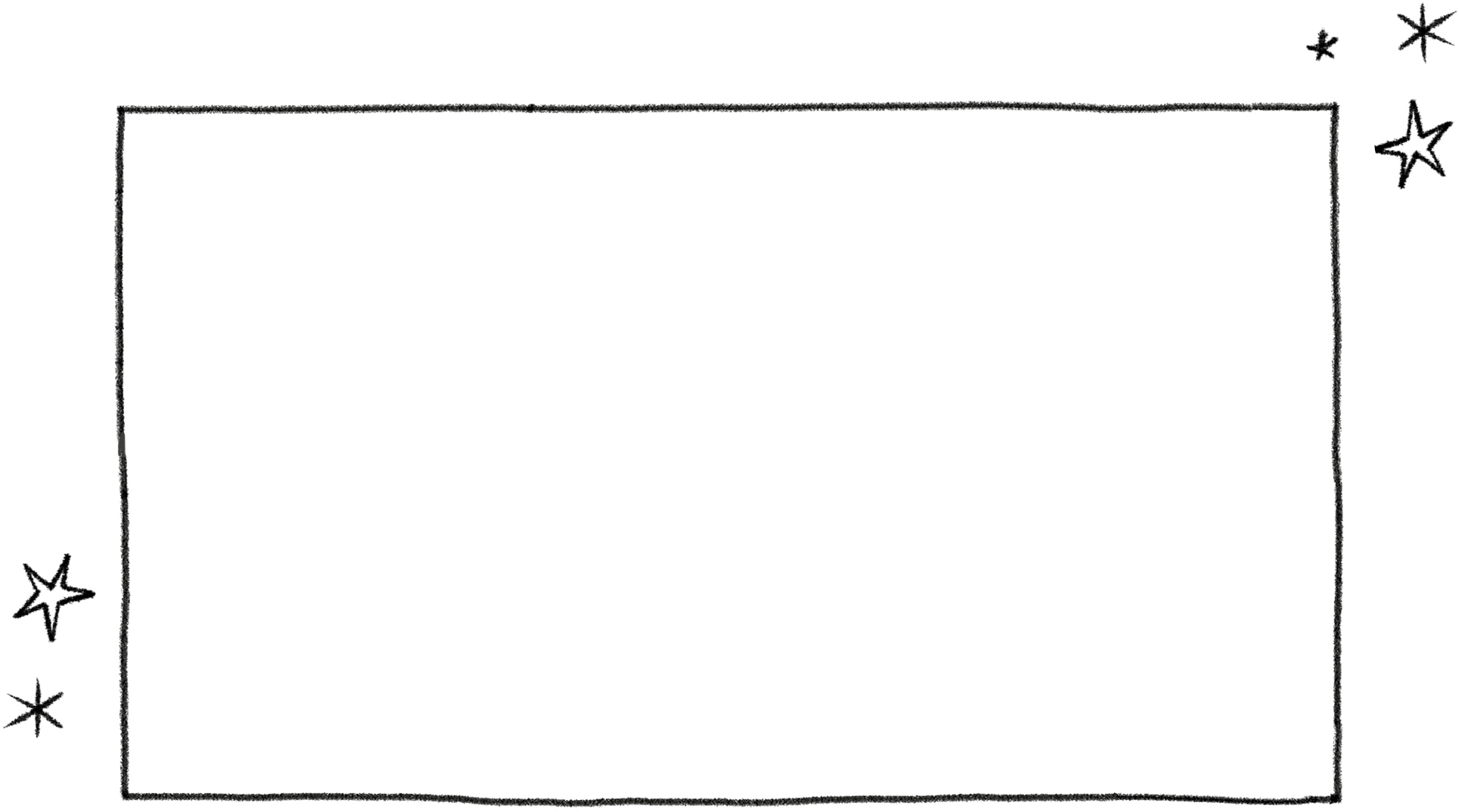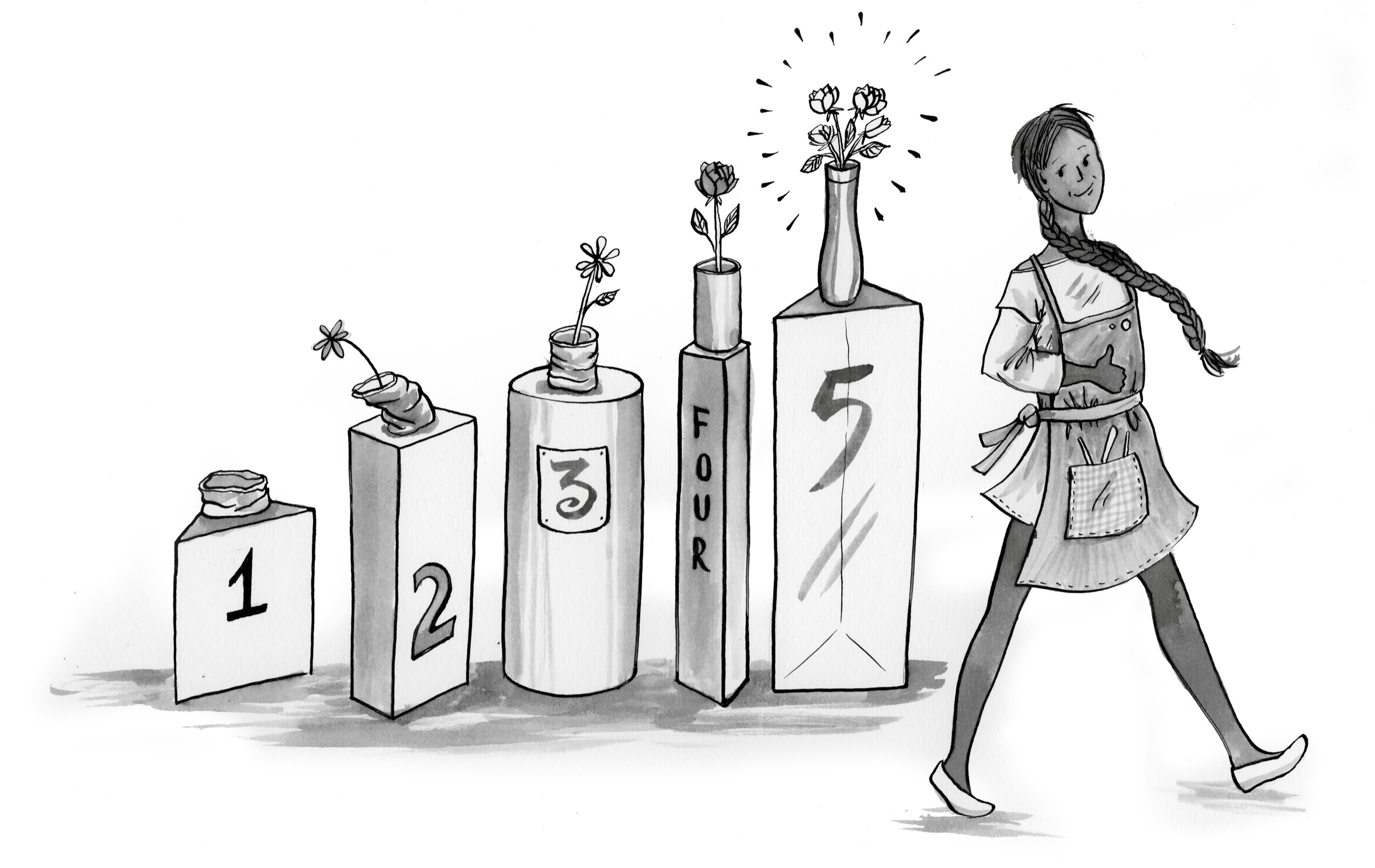 CHAPTER 6
CHAPTER 6 
Failure to Launch
If everything was perfect, you would never learn and you would never grow.
—Beyoncé, world-famous entertainer

In the last chapter, we talked a lot about planning for, encountering, and overcoming your fears (and in some instances, planning to avoid these fears altogether). And everything that was said in that chapter remains true! But sometimes, despite all of our best efforts, fears can get the better of us. And when we think about that, there’s one really obvious question that comes to mind: What if some of our fears—and especially the fear of failure—come true? What do we do then? Because let’s face it—no matter how hard we try, how much we plan ahead, or how strong our dreams are, the fact of the matter is that failure is sometimes inevitable.

Hold on now! Before you start to fully panic, let me clarify what I mean here. I’m not saying that failure is inevitable in the long run—of course not! I fully believe in you and your ability to achieve your dream. But at the same time, I have no doubt that you will likely face failure along the way. How do I know this? Because pretty much every single dreamer before you (myself included!) has failed at some point or another. The history of chasing after dreams is absolutely filled to the brim with failure and mistakes. Life in general is full of failures and mistakes, so there’s really no way to completely avoid them.
The good news is that in most cases we come out just fine on the other side. In fact, in many instances facing failures and experiencing mistakes actually allows us to become stronger, more focused, and more determined than we were before the failure or mistake. Failure really can be a good thing for dreamers—it all depends on how you view failure before it happens and how you respond to it once it does. If you expect to fail along the path to your dream and have the tools and skills necessary to manage that failure, you’ll find that your failures can become stepping-stones to success instead of insurmountable roadblocks. I can say with great confidence that you will likely fail as you reach for your dream—and I can also assure you that this failure will actually help you achieve it! I’ve been chasing my big dream of becoming an astronaut and someday walking on the surface of Mars for a long time now, and along the way I’ve run into many failures, and made many mistakes, big and small.
The first really BIG failure that I remember experiencing occurred when I was sixteen years old. I was in my first semester at the University of Minnesota and was taking my first-ever college classes, including a slightly more advanced chemistry class that I had placed into. I faced one immediate problem, though . . . I had never actually taken a chemistry class before! I just happened to have placed into the advanced chem class because I had a good foundation in other sciences and because, well, I was good at taking tests. Even knowing that I didn’t have a good basis in chemistry and that I had barely scored high enough to enter the advanced class, I chose to challenge myself by taking it. This ended up being a mistake—but in the long run, it was a really good mistake.

Since I didn’t have the proper background (or really any background) in chemistry, I of course found myself struggling with the material. On top of that, though, I also struggled with the structure of the class. In high school, which was what I was used to, I’d had about forty fellow students in my classes; this chemistry class, on the other hand, had roughly five hundred students in it! Because of this massive size, it was a much more hands-off class—and as someone who learns through discussion and practice, this was not good news for me. When the semester ended, I wound up with a C-, and I was absolutely devastated. (Okay, a C- might not seem like a big deal, but up until that point I had consistently been a straight-A student, so to me it felt like a massive failure!) I remember going home after getting my end-of-semester grades and running into my mom’s arms to cry my eyes out. I felt like, if I had already failed during my very first semester of college, maybe I wouldn’t be able to succeed at all—maybe I just wasn’t cut out for academia. Even worse, I worried, what if I wasn’t smart enough to be a scientist? How was I going to ever become an astronaut if I couldn’t even pass a college chemistry class?? I truly felt like this was the end of my dream.
Luckily for me, my mom didn’t share my concerns. Once I stopped crying and explained to her why I was so distraught, she looked at me and said: “So, how are you going to fix this? What can you do to make it better?” She assured me that this failure wasn’t a reflection on my ability or intelligence, that I could still accomplish my big dream, and that I could get past this. And it turned out, she was right! I was able to retake the class the next semester and have the C- erased from my transcript and replaced by a new grade. The next semester, when I took the class again, I learned from my previous failure—I changed the way I studied, I found a tutor to help me understand the material better, and in the end I received an A.
When I was sixteen years old and experiencing this failure, it felt like the worst thing ever—it honestly felt like the end of my dream. But when I look back with all the hindsight that I now have, I’m actually incredibly thankful that it happened. Failing at that chemistry class forced me to think critically about how I learned and studied. I learned how to work harder and smarter—skills that allowed me to crush it in my future classes. I also learned how to manage failure—which was important because I had many more failures yet to come! I was really fortunate that, through all of this, I had my mom to help guide me and make it all into a learning experience. Now I want to share the skills I learned with you so that when you face failure on the way to your dream, you’re ready to take it in stride and keep on going. In this chapter, you’ll learn to anticipate failure before it happens, change your mindset to find triumph in your failures and mistakes, learn and grow from your failures, and most importantly, never stop giving it another try. Does all that sound good and useful? Let’s dig in!

EXPECT FAILURE
The very first, and most important, thing that I can tell you about anticipating failure is that you should expect to fail. I know I’ve already said it, but it bears repeating: you will almost definitely fail at some point. Making mistakes and experiencing failure are inescapable parts of life, possibly even more so when you’re working toward a dream. If you deny that failure happens (and that it will eventually happen to you), then you won’t be ready to manage it and grow from that failure when it comes your way! And that really would not be much fun. I want you to think about facing failure early on so that you know how to use it to your advantage.

But wait . . . what really is failure, and what does it look like? Well, that’s a hard question to answer because failures come in all different shapes and sizes depending on you, your circumstances, and what you’re trying to do. Failure might mean messing up at something, not accomplishing a goal, or otherwise not meeting your own expectations. While failure is different for each and every one of us, here are a couple of examples you might have already encountered: getting a low grade on a test or quiz at school, messing up your lines in the school play, missing a goal in a sports game, forgetting to keep a promise, or even not meeting your own goals of how often you’d like to practice at or work on something. As you can see, “failure” is really a super-broad term and can apply to lots of different things. And what it all comes down to is that the only person who gets to decide or define what counts as a failure to you is . . . you. Just like how your dreams and goals are yours, what you consider a failure is also completely up to you.
Here’s the thing about failure: everyone fails. Think about something you’ve been passionate about in the past—was it all smooth sailing as you got started? Probably not! You’ve probably failed at something before, because everyone fails before they can find success. For example, the last time you started a new sport, you probably made a lot of mistakes as you learned the rules. Everyone makes mistakes when they’re new to something, and oftentimes even when they’re not so new. This is important to keep in mind because it means that, when you do fail, you are not alone. You’re actually in really good company! Every person you consider to be successful—from your personal heroes to global leaders and everyone in between—has failed before they achieved their success. This is a nice thing to think about, because it shows that failing doesn’t mean that you’re on the wrong path. In fact, it actually implies that you’re on the right one! If so many incredibly successful and awesome people failed just like you did (or even more dramatically than you did!), then it’s a lot easier to feel hopeful about your future and your ability to achieve your dream in the face of failure.
Easily one of the most famous singers in the world, Beyoncé holds more records than I can count, has performed in some of the most prestigious venues, and is basically a household name around the world. She’s become so successful that now when you talk about “the Queen,” it’s necessary to clarify whether you mean the Queen of England or Beyoncé, whose nickname is Queen Bey. And although she’s so famous now that it may seem like she’s just always been a walking, talking success, that’s definitely not true—Queen Bey went through her fair share of struggles and failures before making it big. When she was just eight years old, Beyoncé experienced one of her first big failures. Beyoncé and three other girls, who together formed a band called Girls Tyme, performed and competed on Star Search (at that time the biggest national talent show on TV). Even after going all out for their dream, and putting their dream out there for the world to see, the group lost the competition. Instead of letting this failure stop her, though, Beyoncé continued to dream big and work hard, going on to form the massively popular and successful girl group Destiny’s Child (ask your parents, they’ll know who they are!) and eventually striking out on her own solo career, which we all know the result of. So, if you experience failure on the road to your dream, don’t worry—you’re in good company! Just like Beyoncé, by having the right attitude, a good support system to believe in you, and the drive to keep going when the going gets tough, you too can reach your dream!

-
Oprah Winfrey: “There’s no such thing as failure. Failure is just life trying to move us in another direction.”
-
Michael Jordan: “I can accept failure, everyone fails at something. But I can’t accept not trying.”
-
Theodor Seuss Geisel (aka Dr. Seuss): “I’m sorry to say so but, sadly, it’s true that bang-ups and hang-ups can happen to you.”
-
Heleen Snelting: “I remind myself that not succeeding is fine, not trying is not. You’ll surprise yourself, I guarantee.”
-
President Abraham Lincoln: “My greatest concern is not whether you have failed, but whether you are content with your failure.”
-
Bill Gates: “It’s fine to celebrate success but it is more important to heed the lessons of failure.”
Failure—It Might Be Out of Your Control!
Here’s another thing about failure: failure is not a reflection on you or your capacity to be awesome and achieve your dream. Sometimes failure is a message that you’re just not ready yet—that circumstances just aren’t quite lining up right at this moment, or that you don’t have the proper skills at this point in time. You might need to work on time management, follow-through, efficient learning, or skills specific to your dream, like the best technique to throw a football, knowing how to read sheet music, or learning a coding language. Instead of seeing failure as a message from the universe telling you that you are not capable of achieving your dreams (or even just accomplishing one task along the way), see it as a message that says, Not right now, not yet. Try again! Failing at something doesn’t mean that you can’t or won’t ever be successful at whatever it is you failed at—it just means that you weren’t successful the first time. But who knows, maybe you’ll be successful the second, third, fourth, or even fifteenth time that you try! That’s actually exactly what happened to one of my personal heroes, astronaut Clayton Anderson.
Clayton Anderson is an astronaut who applied to the NASA astronaut corps no fewer than fifteen times. He failed the selection fourteen of those times, but then, on his fifteenth try, he was selected to become an astronaut! As a member of the astronaut corps, he filled important roles here on Earth; he provided essential support for multiple missions to space in varying capacities (such as being a member of the backup crew), and he even got to be an aquanaut, during which time he lived in an underwater laboratory for fourteen days! He also, as the title astronaut suggests, actually went to space, where he spent 152 days living and working on the International Space Station. It took Clayton fifteen years from the time he submitted his first application to the time he joined the astronaut corps, and in that period, he applied every time new astronaut selections were held. How’s that for perseverance? If Clayton had taken that first rejection from NASA (or even the second, third, or fourteenth rejection) as a sign that he wouldn’t succeed in becoming an astronaut, he never would have ended up in space.

Now, Clayton isn’t a hero of mine just because of his perseverance. He also serves as an inspiration because he used each of his failures to guide him toward his dream. Instead of simply submitting the same application time and again in the hopes of wearing NASA down, each year he asked himself, How can I make my application better next time? How can I improve myself? And then he acted on this self-reflection. Clayton spent the time in between his rejections doing things like learning to scuba dive, getting a pilot’s license, and becoming the manager of the NASA Johnson Space Center’s Emergency Operations Center. He learned from every rejection that he faced, never gave up on his dreams, and eventually found himself in space!
Now let’s talk about something that can be hard to stomach: sometimes success and failure are completely out of your control. You might experience failure not because of something you did (or didn’t do) but rather because of inescapable factors in your environment. You can try your hardest and do everything right and still end up failing—in fact, you might find that happening more often than you’d expect. Not to worry, though: this is super normal! Here are some tips to keep in your mental toolbox that can help you handle failing at something even though you tried your hardest.
☑First off, take a moment to be proud of yourself! Putting your best foot forward and giving something your all is incredibly admirable. Not getting the results you’d been hoping for doesn’t negate the hard work that you did.
☑Next, ask yourself, Have I really done everything that I possibly could to succeed at this? Try really hard to be truthful with yourself when answering this question. Maybe there’s something that you could do—something you could learn, prepare for, or improve on—that you hadn’t thought of before. There’s nothing wrong with not having done everything you could have on the first attempt, but it definitely helps to be honest with yourself about that if you’re hoping to succeed the next time you try.

☑Now think about what external factors prevented you from being successful. Was your timing off? Were you missing some necessary supplies or information? Did something unexpected affect your performance? The only things that we can control are our mindsets and actions—we can’t control anyone or anything else! But we can change the way that we interact with other people and things, or plan to avoid them altogether. If you want to remove some external roadblock that caused you to fail, you have to know what that thing was.
☑And finally, try again! But maybe don’t try again right away, or in the same exact way as before. Use the steps above to inform your decision on when and how to try again. If you found that there actually was something more that you could have done to improve your chances of success, take the time to learn or do that thing. If you identified something external that negatively affected you, think about what you could do differently this time to avoid or respond to that external factor.
I once heard someone say, “Fail often, fail fast,” and it’s an idea that I think is key in reaching for your dreams. It’s important to take the time after a failure to analyze, understand, and learn from it. But it’s also important to not spend too long looking back. Don’t let yourself get stuck dwelling on your past failures—once you’ve spent an appropriate amount of time learning from a failure or mistake, move on! Look forward, to the future, and move on from your failures quickly to ensure they don’t end up holding you back from being brave and audacious in the future. Each of us needs to find our own right balance for how long that might take. I can’t tell you exactly how long you should spend thinking back on a failure (I wish I could!), because this is a unique experience for each dreamer. What I can do is tell you to keep this in mind: through trial and error, you will figure out your own ideal amount of time to reflect over failures and mistakes.
And above all, when you experience failure, remember this: whether or not it was something that you could have controlled or avoided, be proud that you tried. The biggest failure of all is to not even try in the first place, because if you don’t, you have a zero percent chance of succeeding. Your odds can’t get worse than that, so you might as well try! Be proud that you tried, be thoughtful and honest with yourself about why you failed, and then, when you’re ready, give it another shot (or fifteen).

GROW FROM FAILURE
Failure is inescapable—and honestly, we shouldn’t try to escape failure. Rather than running away or hiding from failures and mistakes, we should embrace failure as the awesome opportunity that it is! Failure is an essential part of learning and growing. If we never failed we would never have to try harder, challenge ourselves, change the way we do things, or grow.
Truly, failure and success are not polar opposites of one another (even though most of us have been raised to view them that way). Failure and success don’t make for an “either-or” situation, nor are they an “all-or-nothing” pair of ideas. Failure is an essential part of success. You can think of failure as a growing pain. It’s uncomfortable, distressing at the time, and you’d likely rather not experience it. But I bet you probably like getting taller—and you can’t do that without a few growing pains. Similarly, you probably like improving and succeeding, but you can’t do those things without also experiencing failures and mistakes.

A way to think about this in more concrete terms is to think about the writing process. It might surprise you to hear that most people—even famous and successful writers—aren’t completely happy with something the very first time that they write it. (I know I’m certainly not—and that includes my writing in this very book!) You’ve probably experienced this as well, whether while writing for fun or writing something for school. It usually takes some time after you’ve written something to improve it—maybe you read it through a second time and made some edits, maybe you had someone else read it and comment on it, or maybe you’ve even scrapped an entire piece and started over from scratch! Improvement, and eventual success, only really happens after failures and mistakes. It may not always be the most fun or comfortable experience, but it is a necessary and helpful one. When you weigh out the pros and cons of growing pains vs. not growing at all, the pains are worth it. And when you balance the pros and cons of failure, the pains of failure are definitely worth it in the long run.
So instead of seeing mistakes and failures as personal deficiencies, try instead to see them as opportunities! Experiencing failure and making mistakes gives us a more humble outlook. They guide you to figure out and focus on what you need to do now to be more successful at achieving your goals and dreams in the future. Because let me assure you—you are not perfect at anything yet! Even most successful people never really see themselves as having reached total perfection in their field. When you see yourself as having reached perfection at something, you stop striving to be better at it, and that is the beginning of becoming worse. Mistakes and failures don’t mean that we’re bad at something or that we’re not making progress at it—rather, they ensure that we realize we still have room for upward growth and improvement. This is a super-valuable frame of mind to have, and you have failure to thank for it—and I think that’s pretty great.
To avoid letting your failures rob you of your confidence and belief in your dream, challenge yourself to think about the positives of moments of failure, even if they might not seem obvious at the time. Additionally, when you start to feel a mistake or failure encroaching on your self-confidence, challenge yourself to think of your failure as something distinct, separate, and different from you! Remember that it is not your failures that define you, but rather how you react to them. Do you get back up again when you’ve been knocked down? Do you maintain a positive attitude after setbacks? Do you try to learn from your failures and mistakes? These attributes are what will lead you successfully to your dream. Fortitude, perseverance, and certitude are far more important and powerful qualities to have than perfection.

Someone who definitely learned from her failures was Nora Ephron. Ephron was an acclaimed writer of both books and movies (including modern classics like Sleepless in Seattle and When Harry Met Sally), but not all of her projects were successful. Over the course of her career, Ephron was nominated for three best director Oscars, and won several other notable awards as well . . . but she also won two Golden Raspberry Awards (also known as Razzies). The Razzies are basically the opposite of the Oscars—they celebrate the worst films of the year! Ephron won a Razzie both for worst screenplay and for worst director. Oof. But it was through her failures—whether they won awards for being so terrible or just went relatively under the radar—that Ephron was able to continue to grow as a writer and director and to hone her skills to become what we remember her as today: one of the greats.

Triumph in Failure
I want you to take a minute to think about the greatest success stories out there. Really ask yourself, what are the stories that we remember, the ones that resonate deeply with us? Almost always, they are the stories that include failure as a crucial element prior to success—they are the comeback stories. And some degree of failure has to be wrapped up in them, because you can’t have a comeback without a knockdown. The stories of success that inspire us the most are those that include perseverance in the face of failure, and often perseverance in the face of repeated failures. Sure, an accomplishment is celebration-worthy on its own. But an accomplishment after setbacks, disappointments, and all-out failures? That’s even more than celebration-worthy—that’s legendary.
The reason we love stories with failure in them is that failure is such a universal human experience. We’ve all experienced it (whether in a small way or on the path to our biggest dreams) and as such, each and every one of us roots for success when it comes around.
Often, when we are in the midst of experiencing a failure, when we’re right there in the thick of it, it can be difficult to see how our immediate turmoil might eventually become one of our great points of pride. That makes sense, right? Failure can feel dramatic and disheartening—in the moment, it can feel like the endpoint of a dream. And the more dearly you hold your dream, the more deeply you might feel the setbacks as you work toward it. But if we want to be successful through failure (and even use it to further our dreams instead of ending them), it’s important to alter the way that we perceive it. We need to be able to find the triumph that we know is the flip side of the failure coin even as it’s happening. To cultivate a mindset to find triumph, not only once you’re at a height, but more importantly, while you’re at a low point, try to think of the failure that you’re experiencing (or have experienced in the past) as a plot point in the story of your dream.
A great way to improve your mindset and find the positive sides of your mistakes and failures is to challenge yourself to place your experiences into a larger perspective. Is the failure that you’re currently experiencing truly the end of your journey to reach your dream? Or is there a way that you can “rise up from the ashes” and continue on your path with greater focus and drive than before? Our failures and mistakes often seem much larger, worse, and more important at the time that we experience them than they really are. It’s often not until some time has passed that we really see how insignificant our missteps might be. If your journey toward your dream is a story, remember that every great story has adversity in it—yours included. But you can and will overcome that adversity! Ask yourself, If I were telling the story of how I accomplished my dream ten or twenty years from now, how would I talk about this moment of failure?
Success is more meaningful and impactful when it occurs not without failure, but regardless of failure, or even because of failure. Experiencing failure along the road to your dreams helps you develop resiliency and grit—traits that will help you accomplish so much in life. And even more, experiencing failure tells you that you are on the right track—that you are challenging yourself to push your boundaries and truly do something that stretches your limits. If you’re not experiencing failure, it just might mean that you’re not challenging yourself enough to truly discover your full potential.

You are the only person who gets to decide how you feel and think about a failure—and what’s more, you are the only person who gets to decide what even qualifies as a failure, a success, or something in between! In the same way that not everyone will understand your dream and your dedication to your dream, some people might not understand why you feel the way you do about specific steps along the way. The only opinion that truly matters is your own! Thomas Edison once said, “I have not failed. I’ve just found 10,000 ways that won’t work.” Believe in your dream and the path you’ve chosen to take to accomplish it. Don’t limit yourself by letting other people put their limits on you! And most importantly, remember that everyone (including you) fails before they can accomplish or achieve anything and it’s only through this failure that you can learn and improve. Failure isn’t inherently a bad thing; it’s an opportunity. So even though it may not always feel so great to fail—in fact, it will probably feel pretty lousy most of the time—failure is an important step in following and achieving your dreams.